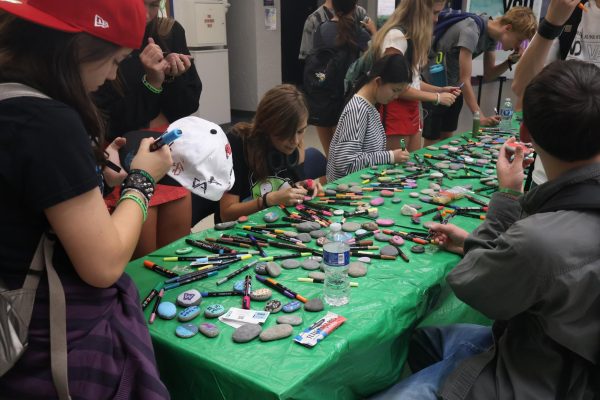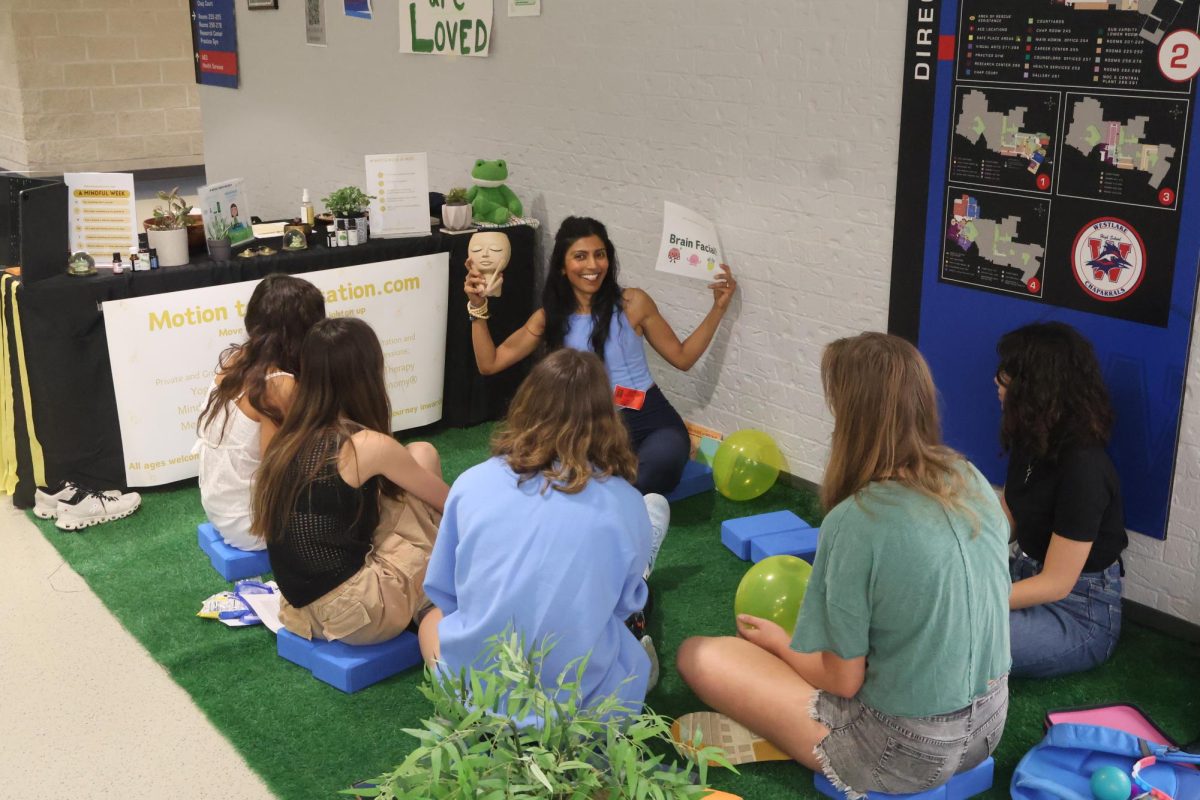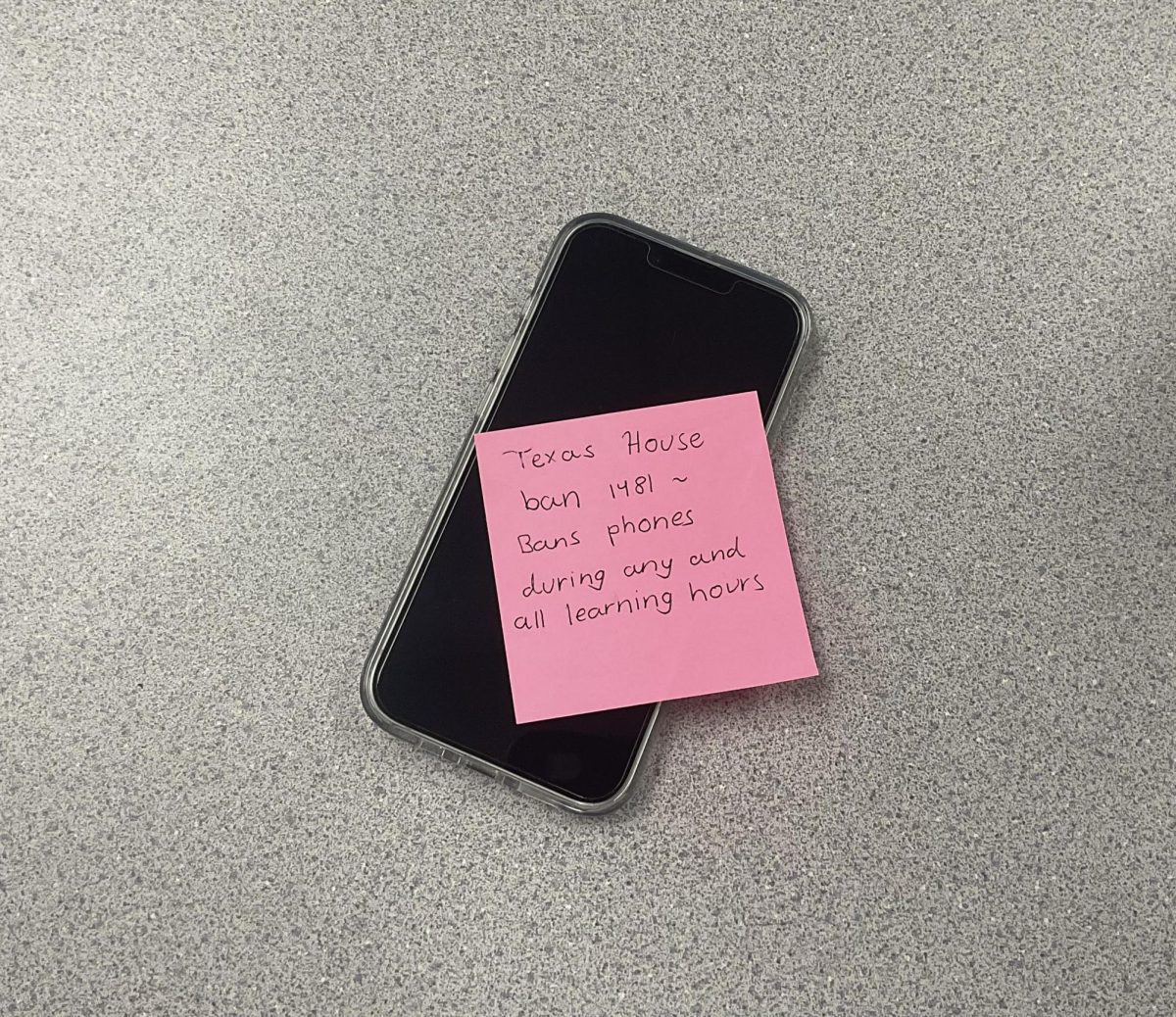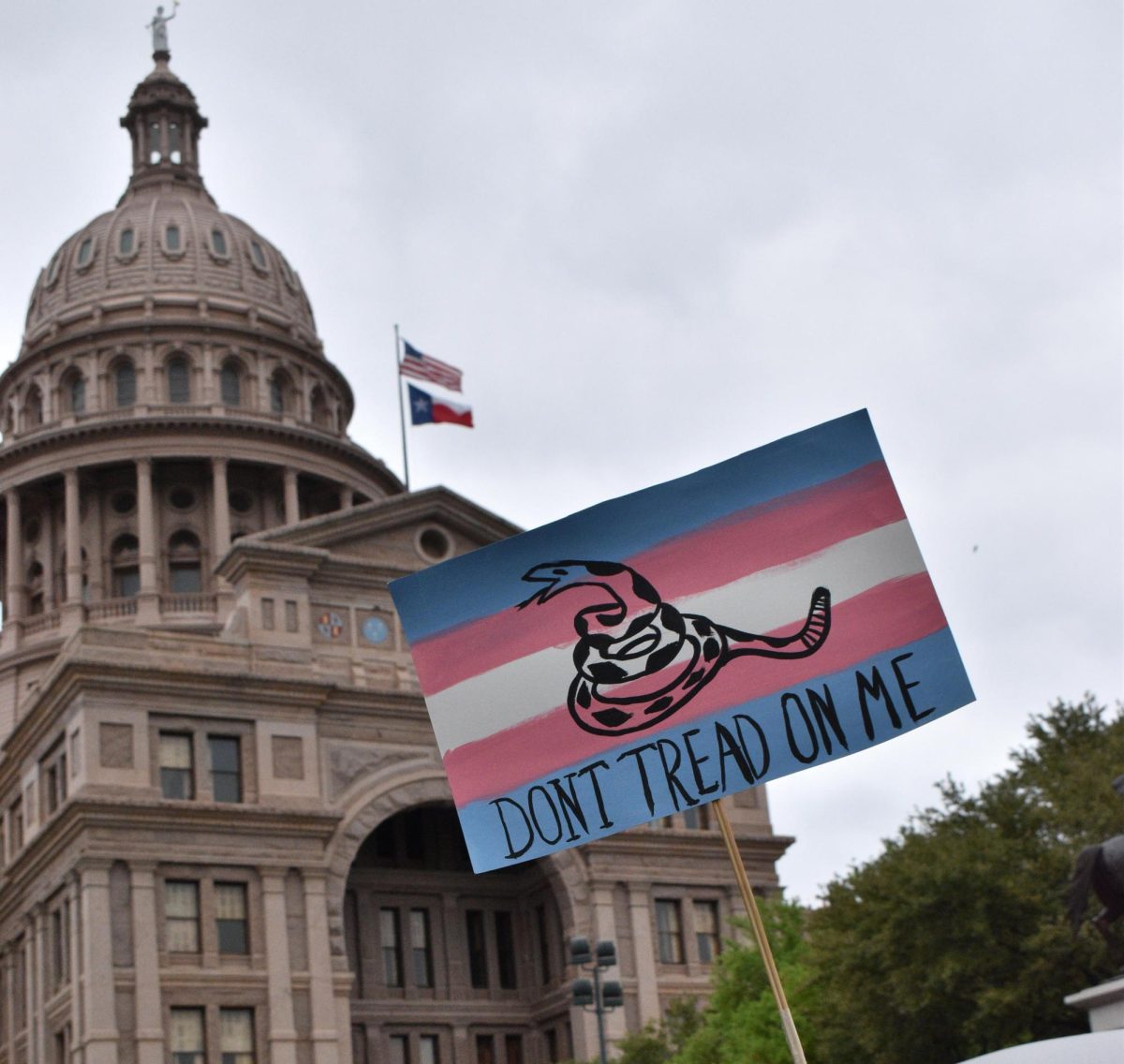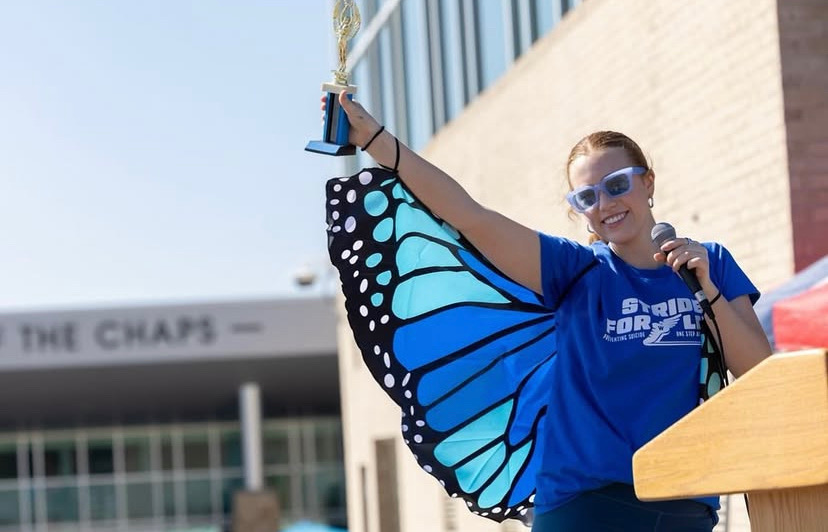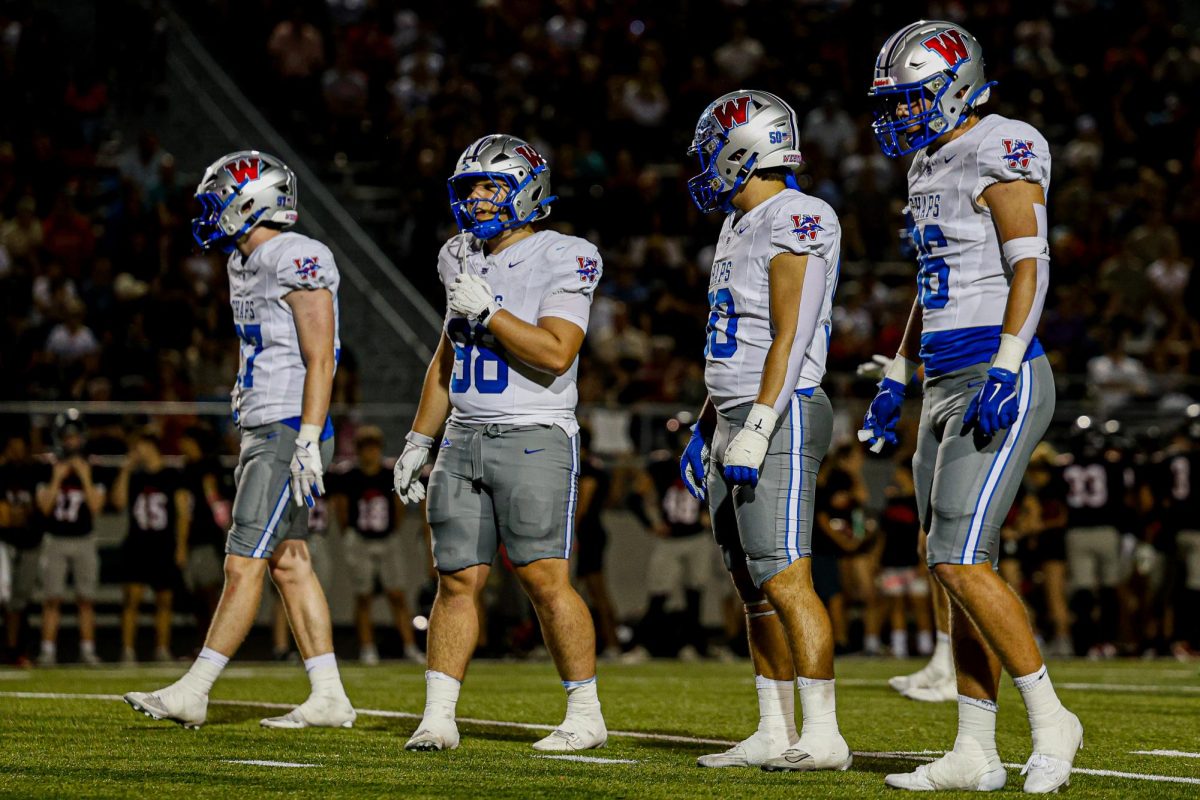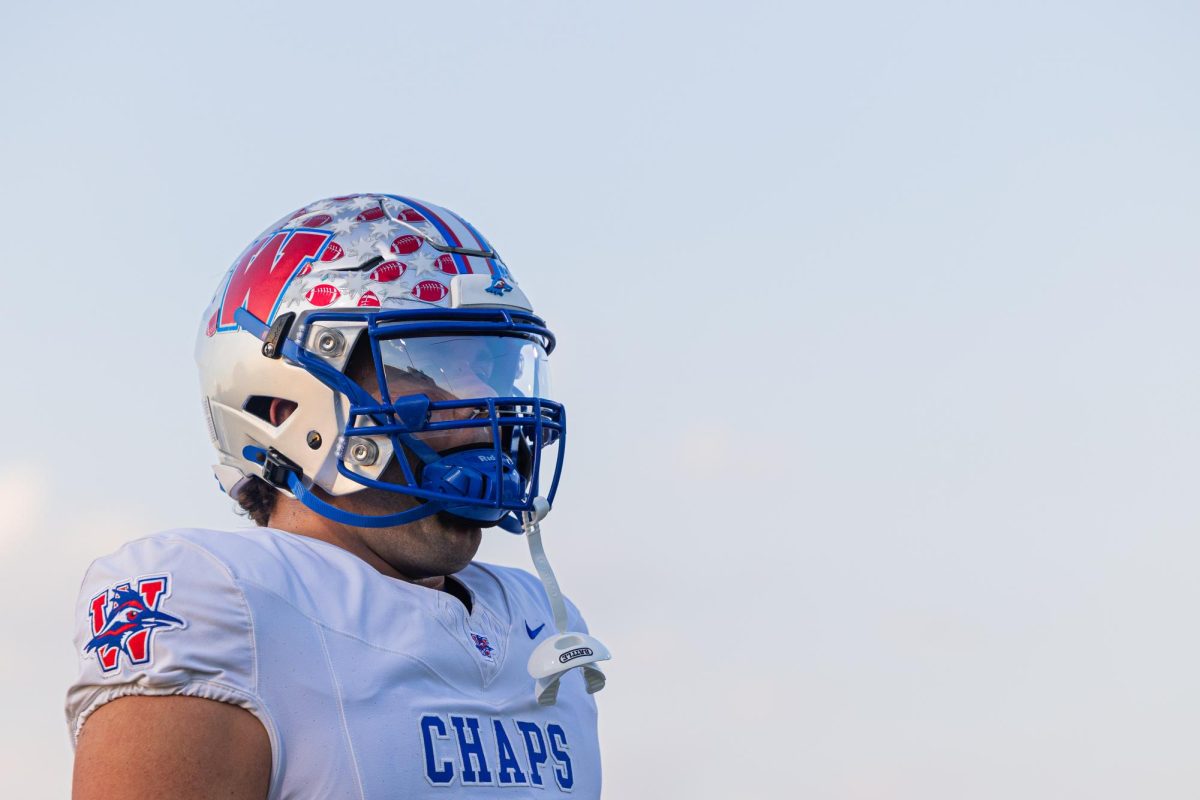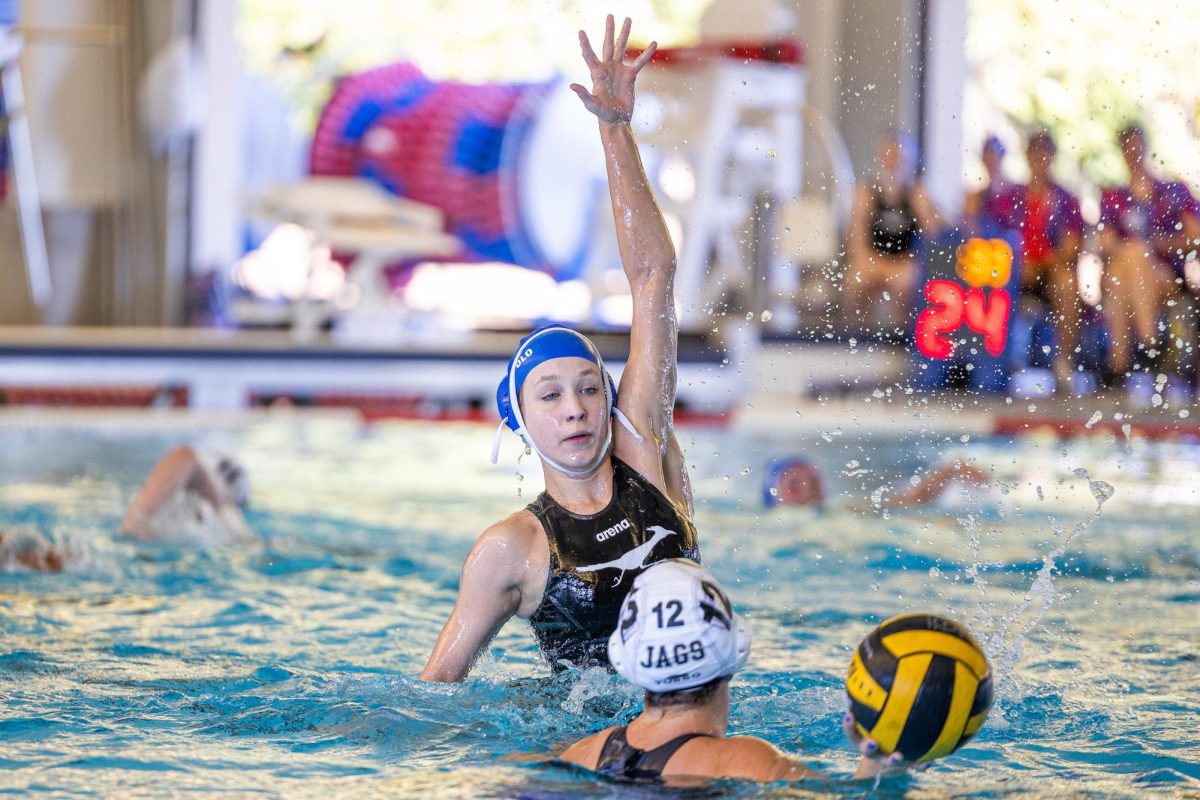Westlake observed its second annual Suicide Prevention Week from Sep. 9 to Sep. 13. Goals of the week were abbreviated as “CHAPS,” with each letter corresponding to a day: Connection on Monday, Health and Wellness Fair on Tuesday, Awareness on Wednesday, Prevention on Thursday and Sea of Green on Friday. Guidance Counselor Katie Bryant was the lead organizer.
“[Guidance Counselor Brooke] Anderson and I [once attended a] conference, and another school put a big emphasis on teen dating violence,” Bryant said. “And we just left thinking we’ve got to do more with mental health in general, and definitely suicide prevention.”
Bryant organized student leaders, as well as outside-of-school individuals and groups to offer different activities every day.
“We worked our time in [with] last year’s and this year’s student council,” Bryant said. “And then we tried to involve as many student groups as possible. Outside of [school,] … we tried to get a big variety of different types of therapists and agencies to come in.”
The day with the most agencies and therapists on campus was Tuesday, Sep. 10, during the Health and Wellness Fair in the Commons. Student groups and outside-of-school organizations set up stations and activities promoting health and wellness.
Student council not only helped in organizing Suicide Prevention Week this year; they also set up an activity of their own at the fair. During 5th period, the station was run by 10th grade Vice President Bella Zabaneh. At this booth, you could write a letter of gratitude to anyone — student, teacher, or even a celebrity — and it would be delivered to them.
“I think [gratitude letters are] just nice reminders, knowing that people are thinking about you and people love you,” Zabaneh said. “So, if things get hard, you can always look back at that letter.”
Therapist Megan McWilliams, who works mainly with teens and adults, promoted her private practice at the fair. McWilliams offered insight on the connection and awareness part of Suicide Prevention Week, as it relates to health and wellness.
“It’s unfortunate, but I have seen [suicidal thoughts] at such young ages,” McWilliams said. “I think it can get kind of magnified in the teenage years, because so much is going on. I think it’s really important to start talking about mental health in the first place, because it can be so secretive sometimes, and … events like this kind of break the stigma a bit.”
The goal of Thursday, Sep. 12 was prevention. Activities on Thursday included therapy dogs and a sound bath, meant to help students and staff relax and relieve stress. Both activities involved outside-of-school individuals and organizations.
Chibuzo Aguocha, who runs her own business called LYTbody, hosted the sound bath. She explained that LYTbody helps people manage their mental, spiritual and physical health.
“[LYTbody] is an energy healing practice [that] teaches about the chakras, which are the seven energy centers that are in the body,” Aguocha said. “It just makes it really practical and easy to understand what they are, how to recognize what they represent, and how they manifest in your everyday life, and then ways to balance them if there are any imbalances or bringing them back in order.”
A sound bath is one of the practices LYTbody uses. Sound baths are when people gather in a group and either sit or lay down, while the practitioner uses tools and instruments to play relaxing sounds.
“There are actually sciences behind the frequencies that sound makes, and how it also impacts … water … Our bodies are nearly 80, 90% of water, and [we know] that sound can move through water and create changes,” Aguocha said. “Also, being able to allow yourself …. [an] opportunity to sit and be still, [to] not think … is … beneficial, and then adding sound just kind of amplifies what it can do for you.”
This practice of withdrawing your senses to be in tune with oneself is called Pratyahara, which is one of the eight limbs of yoga, according to Aguocha. She said that sound is not the only sense used in Pratyahara; the sense someone uses (smell, touch, etc.) depends on personal preference. She also emphasized the importance of mental health for teenagers.
“High school and our school years are such an important time for us to grow and to learn who we are … What you are thinking about now as a student in high school … it’s going to change,” Aguocha said.
Judi Alexander and her therapy dog, a Siberian Husky named Poppy, visited on Thursday as part of the Divine Canines, an organization made up of volunteers and their pets. Pets are trained to visit places such as nursing homes, jails and schools with their handlers to offer therapy.
“I thought it would be good to volunteer,” Alexander said. “And so first [Poppy] had to get her Canine Good Citizen [from the American Kennel Club], which any dog can get, and the trainer that did that was also in charge of training dogs for Divine Canines. And so, we just picked Divine Canines [for volunteering] and went through training for six weeks every Saturday and learned how to interact with people. So, [Poppy] passed her tests and we volunteer … wherever we’re invited.”
According to the Divine Canines website, dog therapy offers a unique benefit to those it serves.
“I think [dogs can be beneficial for mental health] because they give unconditional love,” Alexander said. “They don’t want anything in return.”
Friday, Sep. 13’s theme was Sea of Green, where students and staff were encouraged to wear green to bring awareness to mental health. As the week ended, Bryant explained why she thinks the need for Suicide Prevention Week — and its goals of connection, health and wellness, awareness, and prevention — has increased in the past few years.
“I think there’s a lot more talk about [suicide prevention] since COVID because overall, nationally, [suicide] statistics have skyrocketed,” Bryant said.
COVID was a challenging time for many people in the country and around the world, including teenagers. According to a survey taken by the CDC in 2021, 37% of high school students experienced poor mental health during the COVID pandemic. There was a lack of connection and lots of change as everyone quickly transitioned back to school in a way that was not customary.
“[Everything] wasn’t maybe just as stable for everyone as it normally is,” Bryant said. “There were just a lot of changes at that time. And then it was kind of like, ‘everything’s back to normal’, and I think that was a hard adjustment for a lot of people [since] we didn’t ease back into anything.”
Factors besides the changes during COVID may also influence the need for mental health awareness. Rigorous school work, extracurriculars and competitiveness can pressure students.
“We know that when people have connections, that [it] is a huge preventative factor,” Bryant said. “I think a lot of times at school, especially like Westlake, it’s a grind of classes and studying, and a huge emphasis on whatever activity or sport you’re in. And so this is a time to step back and know your connections with people.”
Throughout Suicide Prevention Week, posters were hung around campus, letting students know that they have support in and outside of school. Additionally, some adults offered their own words of encouragement and advice for students struggling with mental health.
“There is so much life that we are given, and [this is] such an important time for [you] to grow and to learn who [you] are,” Aguocha said. “And, give yourself grace for that, because what you think you’re going to be doing … in 20 years … [i]s going to change … [I]f something does come up that is challenging, … there are so many ways that you can be in touch with your mental health and give yourself what you need … [G]ive yourself grace and compassion and love for yourself, because if you’re able to pour into yourself, you’re going to be able to pour into other people and your community.”
Connection is another important part of suicide prevention. For example, many households in the US have pets.
“I think if [you] have something that [you] really enjoy and like to have, like an animal that [you]’re responsible for, is more than [you], gets [you] out — [it gets you] thinking about somebody that needs [you] to be there for them,” Alexander said.
Bryant had one more message for students, as Suicide Prevention Week came to a close. She donned green and stated an overall theme for the week.
“I think it can be really scary to sometimes admit that we’re struggling and then also ask for help, but I think that’s kind of the, that’s the bravest thing we can do,” Bryant said. “I think you’re worth it.”